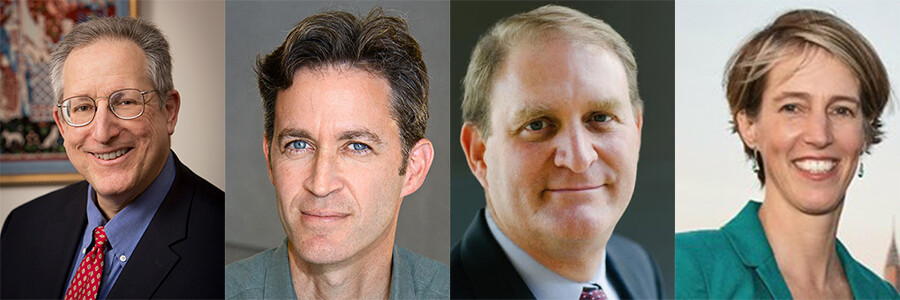ISP Panels Tackle the Facebook Files and Democracy

In late September 2021, the Facebook Files, a massive document leak by the whistleblower Frances Haugen and a resulting series of reports by the Wall Street Journal, reinvigorated public debate about one of the world’s most powerful — and largely unregulated — platforms.
On Oct. 7, 2021, the Information Society Project (ISP) at Yale Law School organized two panels with leading activists and academics, titled “The Facebook Files: What Next? Answers from Activism and Academia,” to discuss the new revelations about Facebook. “The publication of the Files has laid bare Facebook’s ill effects in the world and its systemic avoidance in addressing them,” said Nikolas Guggenberger, Executive Director of ISP.

In the first panel, “The Activists,” Haugen was joined by activists to discuss how people inside and outside technology companies can participate in shaping the platforms that are shaping them. Moderated by Kate Klonick, Assistant Professor at St. John’s University Law School and an Affiliated Fellow at ISP, the discussion began with each of the panelists’ personal history of activism in the field of technology. Haugen, formerly a product manager at Facebook, described how she started working for Facebook to combat misinformation but said she soon realized the problem could not be solved internally, leading her to become a whistleblower.
The second panel, “The Academics,” moderated by Nikolas Guggenberger, Executive Director of ISP, turned to three questions: What went wrong with Facebook? What is wrong with a social and legal framework in which Facebook is operating? And what should we do about it? The panelists discussed a range of legal approaches for regulating Facebook and other Big Tech platforms, ranging from antitrust and privacy law to criminal law and intermediary liability.
WATCH: Panel 1: The Activists5
WATCH: Panel 2: The Academics6

Given Facebook’s opacity, the panelists underscored the courage and importance of whistleblowers in exposing its practices.
“Whistleblowers have given me hope that the conscience of humanity can withstand the excesses of the business model that drives Silicon Valley,” said panelist Meetali Jain, Deputy Director of Reset Tech. “I think that it’s incumbent upon us to really do what we can to rally around whistleblowers, to lift them up, to create the climate of safety and to push for enhanced whistleblower regulations.”
“The digital has to live in democracy’s house.”
—Shoshana Zuboff
Much of the conversation focused on Facebook’s business model and its use of engagement as the primary metric of performance. The panelists repeatedly noted that the pursuit of engagement has led to the spread of misinformation and has reduced the government’s capacity to regulate.
“Metrics have distorted and warped every single aspect of our society through that same philosophical fallacy, that what is engaging is what is good,” said Tristan Harris, President and Co-Founder of the Center for Humane Technology.
Zephyr Teachout, Associate Law Professor at Fordham Law School, gave the example of what the world might look like if public buses used engagement and targeted ads as their business model: “You would spend your time getting on the bus and the bus’s job would be to make sure you stayed on the bus as long as possible, instead of getting where you wanted to go,” she said.
Many of panelists said that there is a deep conflict of interest between the current business models of companies like Facebook and the health of the digital public sphere.
Jack Balkin, ISP Director and Knight Professor of Constitutional Law and the First Amendment at Yale Law School, argued that the harms to democracy are only one potential concern.
“[W]hen we are trying to design reforms, we have to consider all of these values, as well as democracy.”
—Professor Jack Balkin
“We’re worried about public health. We’re worried about bodily security ... Problems of ethnic violence and genocide. We’re worried about privacy. We’re worried about consumer protection, and above all worried about manipulation,” he said. “[W]hen we are trying to design reforms, we have to consider all of these values, as well as democracy.”
Crucially, panelists pointed out, these harms are felt most keenly outside the U.S., where 90 percent of Facebook users live.
Finally, the panelists described various ways of addressing these issues, from short-term fixes that platforms can put in place themselves, to government regulation and public oversight.
Shoshana Zuboff, Charles Edward Wilson Professor Emerita at Harvard Business School, reiterated the importance of holding Big Tech to task.
“These are essential conversations, but they cannot be relegated to the realms of private capital,” Zuboff said. “These are conversations that have to be held among citizens and lawmakers as we craft a digital and democratic century. The digital has to live in democracy’s house.”


